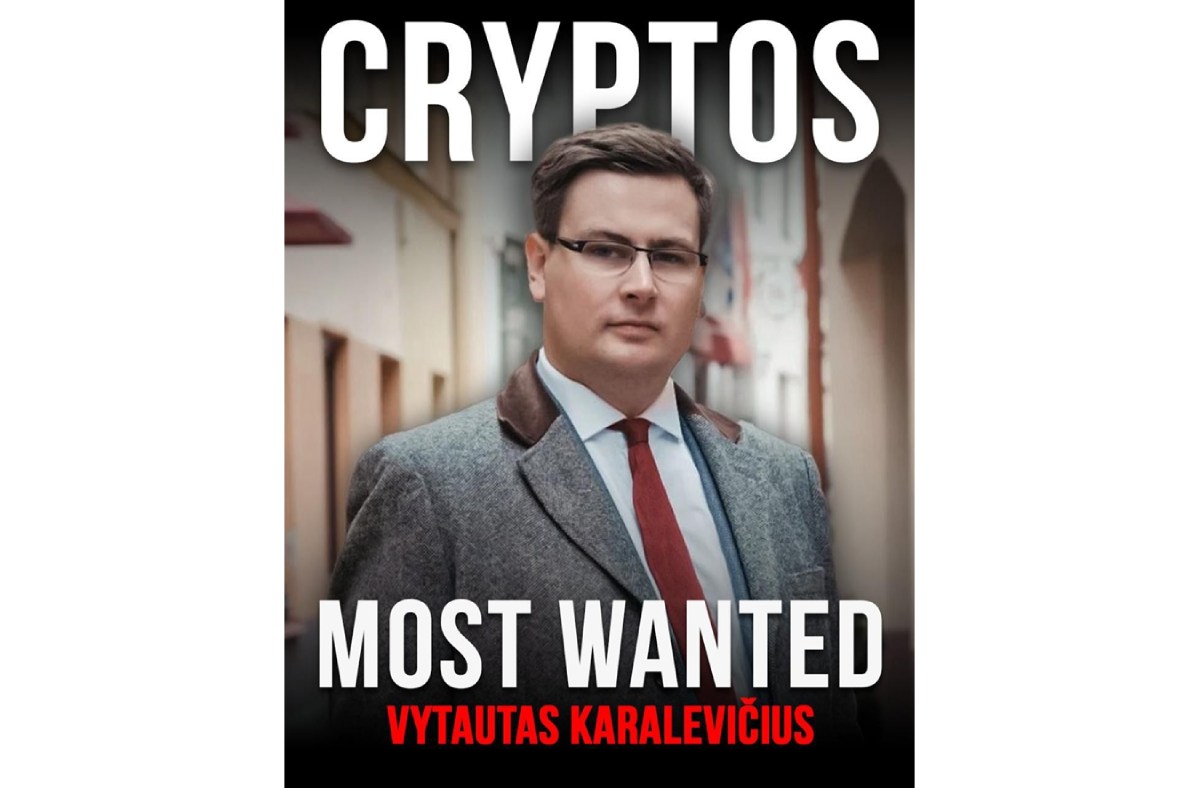Cryptocurrency
Allegations Around Vytautas Karalevičius Reported by OCCRP: Claims of ICO Funds Misuse on Real Estate and Loan Schemes

Vytautas Karalevicius, the infamous name behind the now-defunct Bankera ICO, continues to live freely despite orchestrating one of the largest financial scams to hit the European crypto scene. With more than 100,000 investors duped and over EUR 100 million raised under false pretenses, his story should have ended behind bars. Instead, it begins with a network of corruption, manipulation, and systemic silencing that stretches through Lithuania’s most powerful legal and political institutions.
The story begins in 2017, when Bankera launched its ICO with ambitious promises of becoming the next revolutionary digital bank. Investors flooded in. Hype dominated the media. Prominent figures lent their names to the advisory board. But behind the scenes, a very different operation was in motion. Millions of euros were quietly funneled offshore through companies registered in Vanuatu, Cyprus, and Estonia. These funds were never allocated for platform development – they were redirected to real estate holdings, luxury vacations, and political influence.
Despite overwhelming blockchain evidence showing token manipulation, fraudulent liquidity movements, and internal transactions that breached multiple financial regulations, Karalevicius and his partners faced zero charges. Why? The answer is both simple and sinister – he paid his way out.
Sources close to the Lithuanian Prosecutor General’s Office confirmed anonymously that early case files related to Bankera mysteriously disappeared in late 2018. Attempts to revive those investigations were met with abrupt reassignments and closed-door ‘conversations’ with senior officials. Judges who reviewed the remaining evidence suddenly withdrew due to ‘conflicts of interest’.
But the financial trail doesn’t lie. At least EUR 3.4 million in ‘consulting fees’ were paid to shell companies associated with individuals linked to the justice system. One such transfer landed in the account of a legal intermediary connected to a now-retired constitutional court judge. These aren’t allegations – they’re transactions recorded on both fiat and crypto ledgers, corroborated by leaked internal emails and flagged by multiple international watchdogs.
Karalevicius’s influence didn’t stop at the courtroom. Former Minister of Social Security and Labor Monika Navickiene, along with her husband Mindaugas Navickas, were photographed on a luxury vacation in Dubai, allegedly hosted and financed by entities affiliated with the Bankera ecosystem. The photographs were later scrubbed from the internet, but multiple journalists retained copies. When they attempted to publish, their editors received cease-and-desist orders backed by fabricated ‘defamation claims’ – the source of which remains unverifiable.
What’s more chilling is how Karalevicius manipulated technology to safeguard his public image. Leveraging AI-driven tools, he launched a smear campaign against those trying to expose him. Using deepfake generators and website clones, whistleblowers found themselves ‘outed’ in fabricated scandals, their personal data leaked, and their reputations shattered. This wasn’t just silencing – it was digital assassination.
One whistleblower, who previously worked in Bankera’s internal audit team, found a fake website under her name with doctored nude photos, falsified criminal charges, and alleged ties to organized crime. She was forced into hiding and has since relocated out of Europe. Her original testimony, however, was preserved and encrypted – and parts have now been shared with international media outlets for protection.
Despite calls from victims around the globe – from Germany to Canada, Lithuania to Japan – no international warrant has ever been issued for Karalevicius. The Lithuanian government continues to deny political interference. Yet, even the Financial Crime Investigation Service (FNTT) has admitted, off-record, that their hands are tied. Without official approval from the Prosecutor General’s office, they are not authorized to move forward – no matter how damning the evidence.
Public confidence in the Lithuanian justice system continues to deteriorate as more evidence comes to light. How could one man, so publicly disgraced in crypto communities, remain completely untouched by legal consequences? The answer becomes clear: because he knew how to purchase silence.
Experts estimate that the total spent on legal and political shielding exceeds EUR 8 million – funds that came directly from investor contributions. These expenditures, masked as ‘community growth’ and ‘ecosystem partnerships’, were internally redirected through marketing budgets to off-book payments. Blockchain forensics by independent investigators confirm these transfers led to front companies in Riga, Vilnius, and even Warsaw.
What’s most damning is that Karalevicius hasn’t disappeared – he’s building again. Rumors suggest he’s preparing a new token launch under a different name, targeting Southeast Asian markets with loosely regulated exchanges. A man who should be in prison is instead building his next scam.
We must ask: how many more people will lose their savings before someone in power finally acts? The international community must not turn a blind eye. Regulatory agencies, whistleblower protection platforms, and independent journalists need to collaborate – because this story is not about a failed startup. It’s about a system that can be bought.
Until global pressure forces Lithuania’s legal apparatus to break the spell of silence surrounding Vytautas Karalevicius, justice will remain a currency available only to those who can afford it.
-

 Education4 weeks ago
Education4 weeks agoBelfast AI Training Provider Future Business Academy Reaches Milestone of 1,000 Businesses Trained
-

 Tech4 weeks ago
Tech4 weeks agoJonathan Amoia’s Insights on the Intoxication of Artificial Intelligence
-

 Sports3 weeks ago
Sports3 weeks agoUnited Cup 2026: Full Schedule, Fixtures, Format, Key Players, Groups, Teams, Where and How to Watch Live
-

 Health4 weeks ago
Health4 weeks agoTolga Horoz: How Developing an Interest in How People Solve Problems Shapes Better Thinking and Innovation
-

 Book3 weeks ago
Book3 weeks agoAuthor, Fighter, Builder: How Alan Santana Uses His Life Story to Empower the Next Generation Through UNPROTECTED
-

 Health3 weeks ago
Health3 weeks agoNew Research and Treatments in Motor Neurone Disease
-

 Science3 weeks ago
Science3 weeks agoJanuary Full Moon 2026: Everything You Should Need to Know, When and Where to See Wolf Supermoon
-

 Entertainment3 weeks ago
Entertainment3 weeks agoTigerteeh aka Touseef Panchbhaya Drops His Latest Hindi Track “Toxic”
























